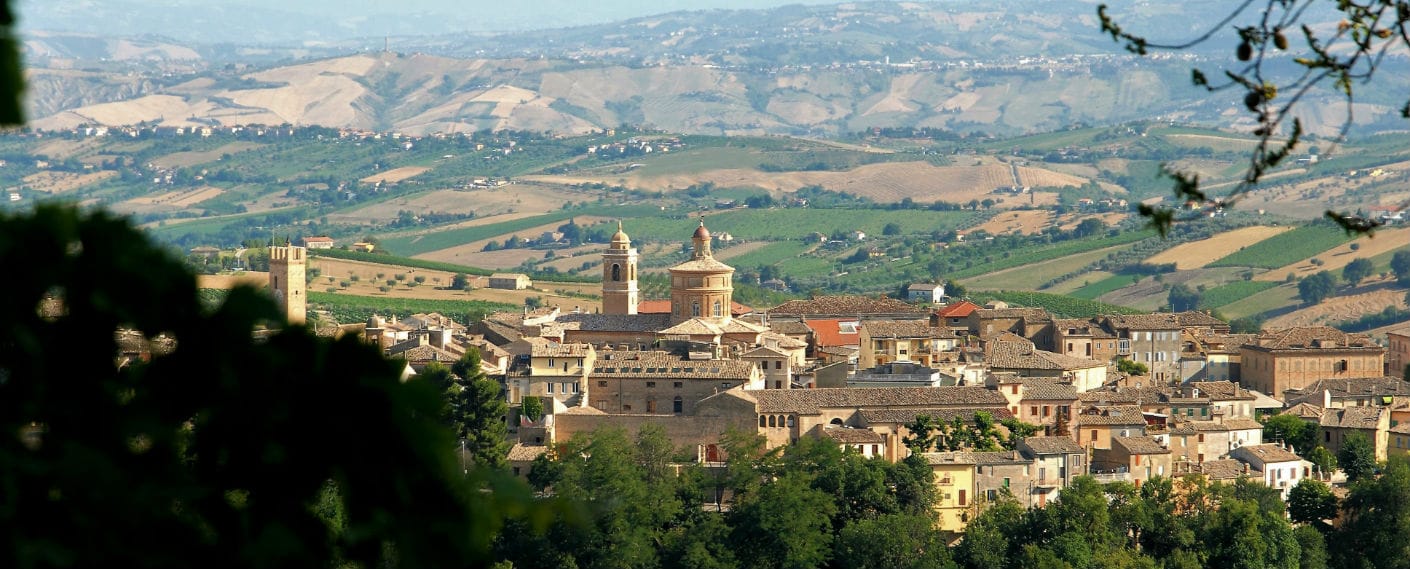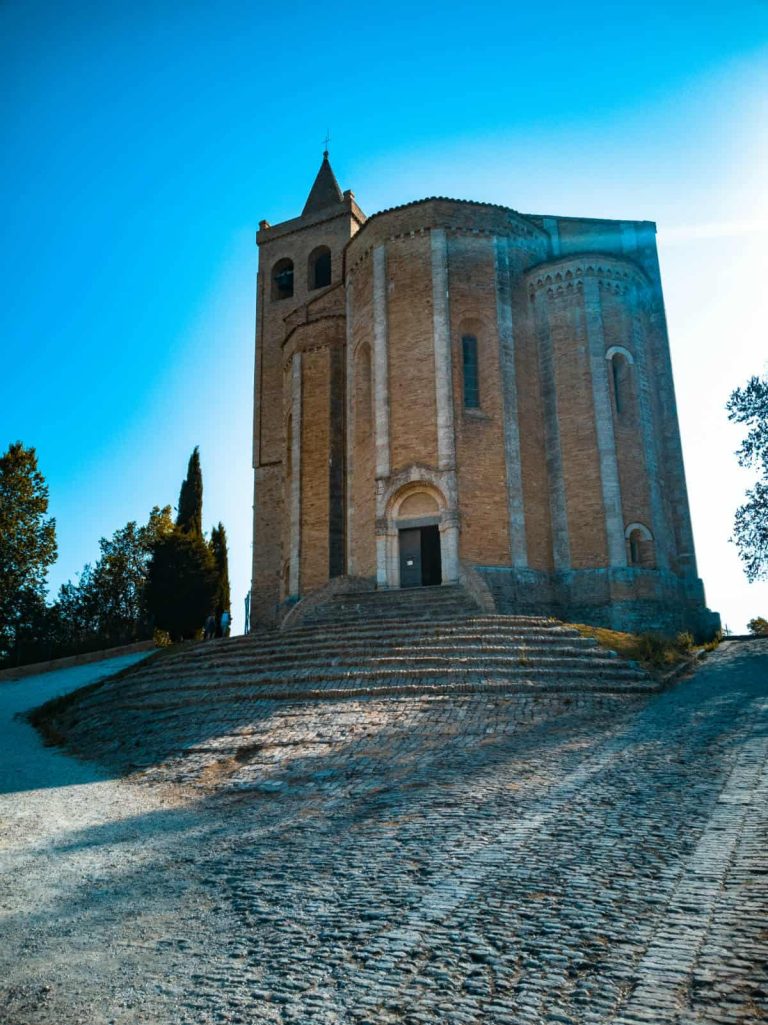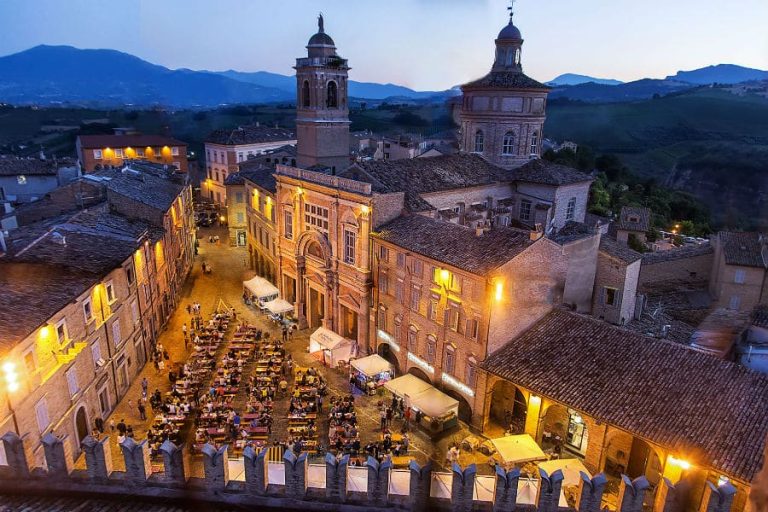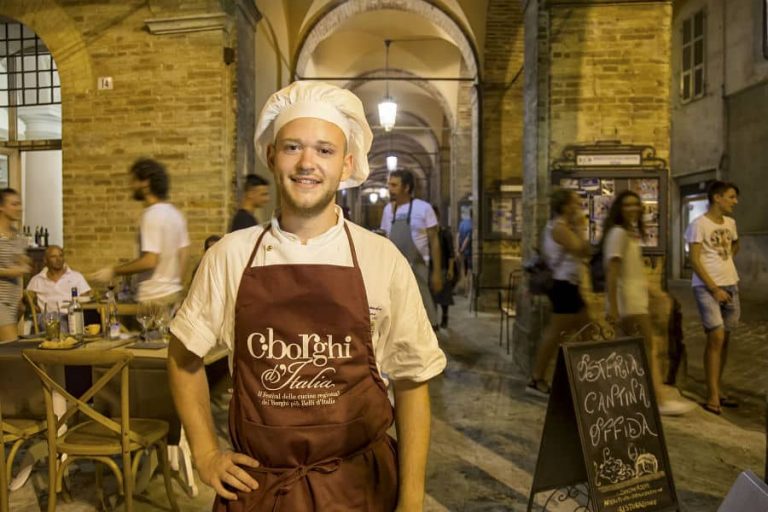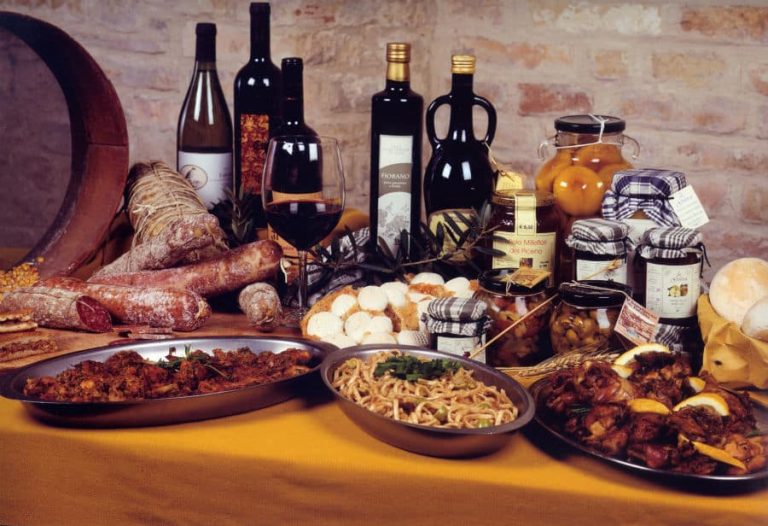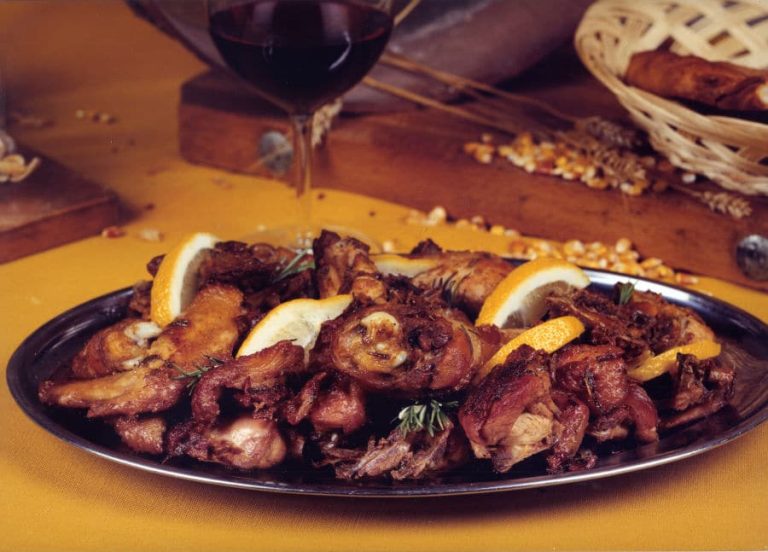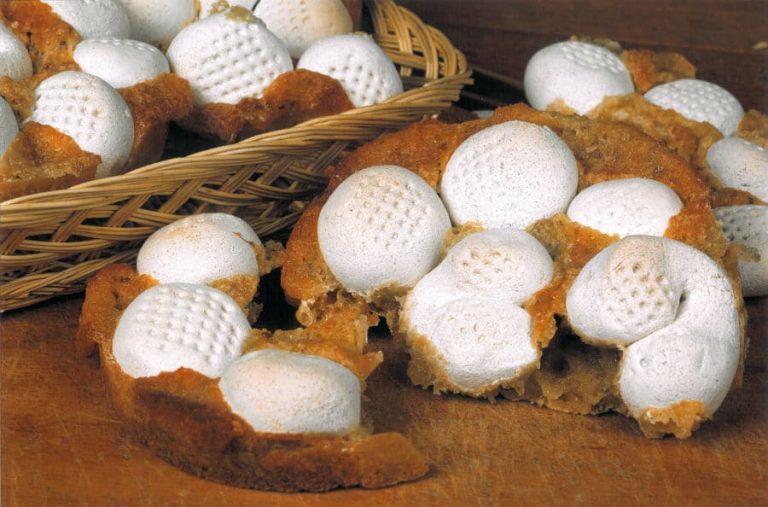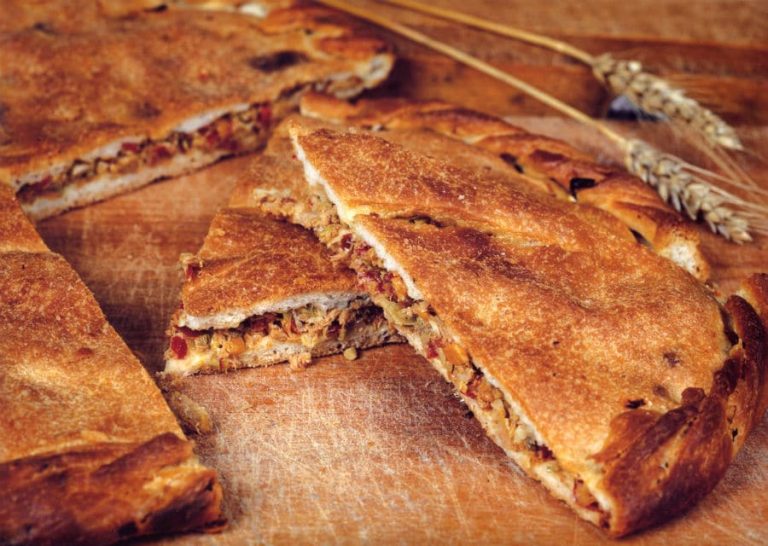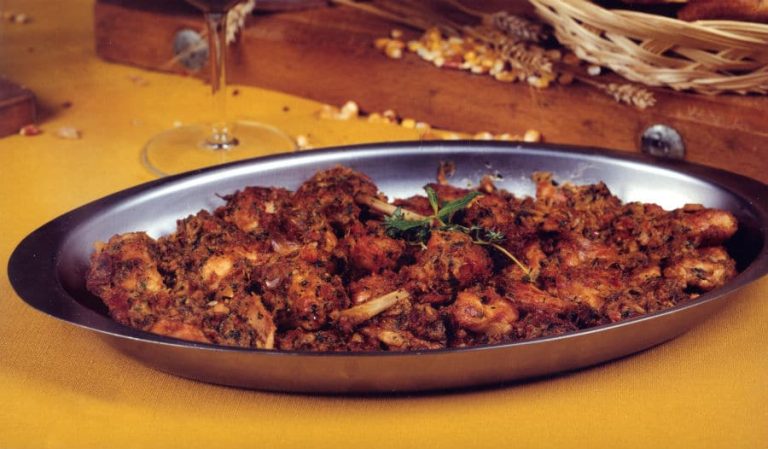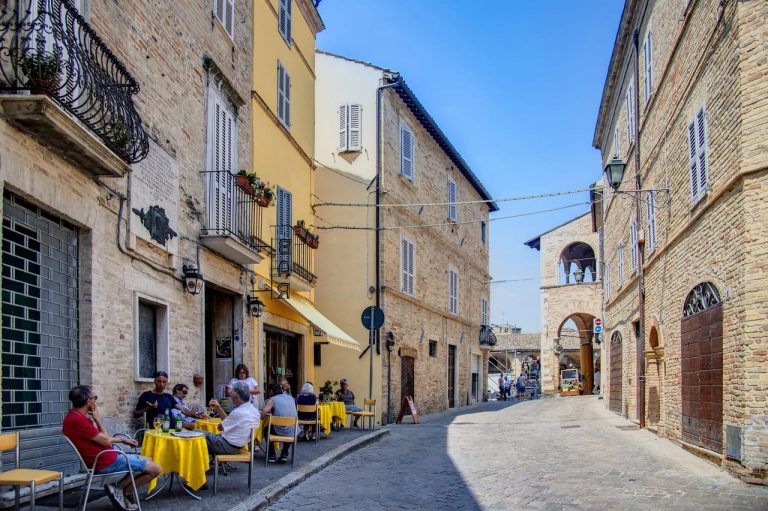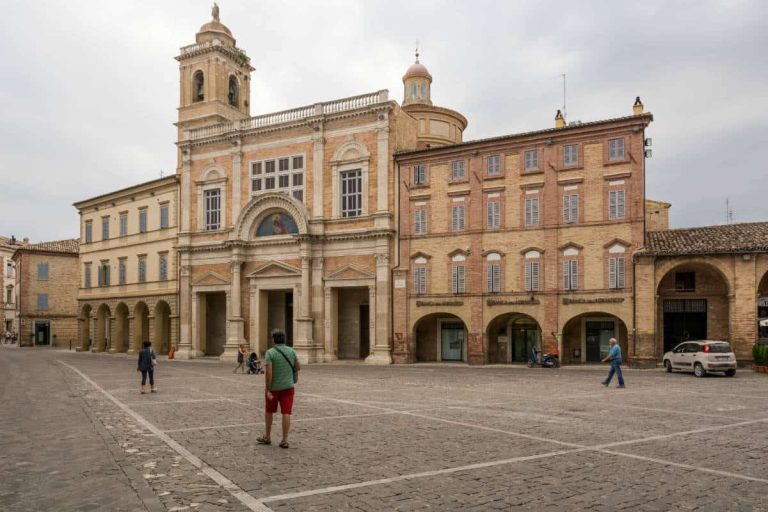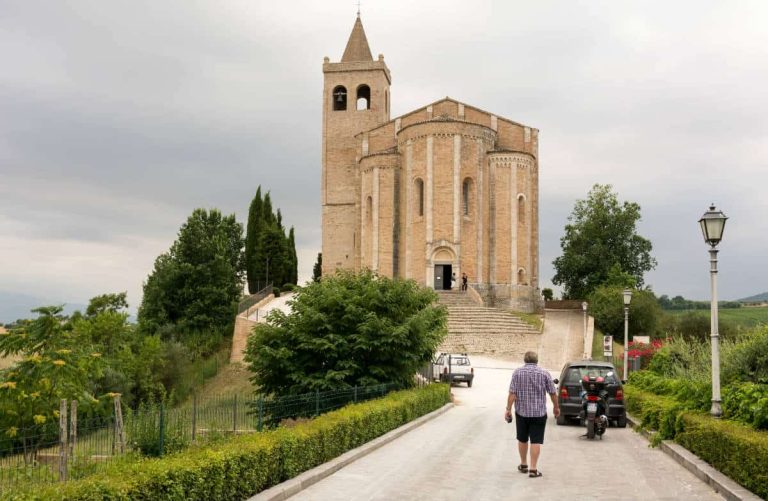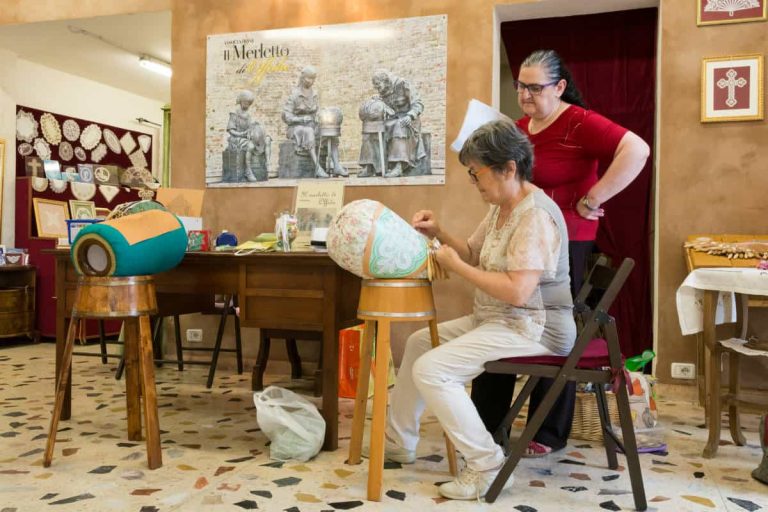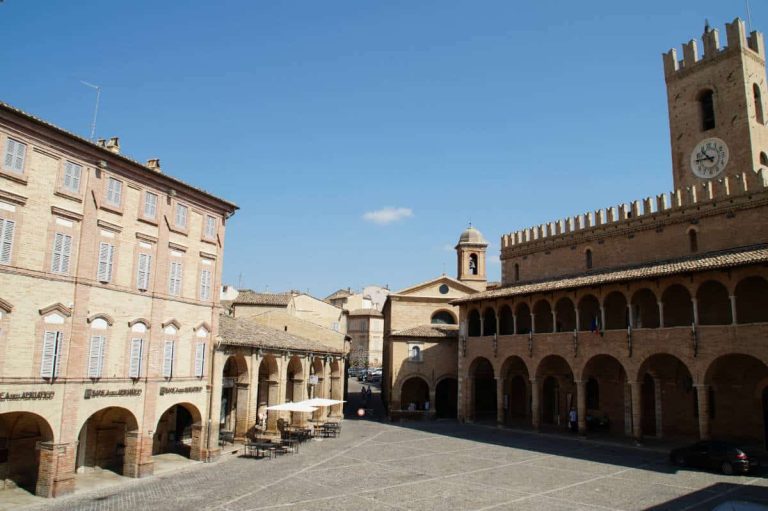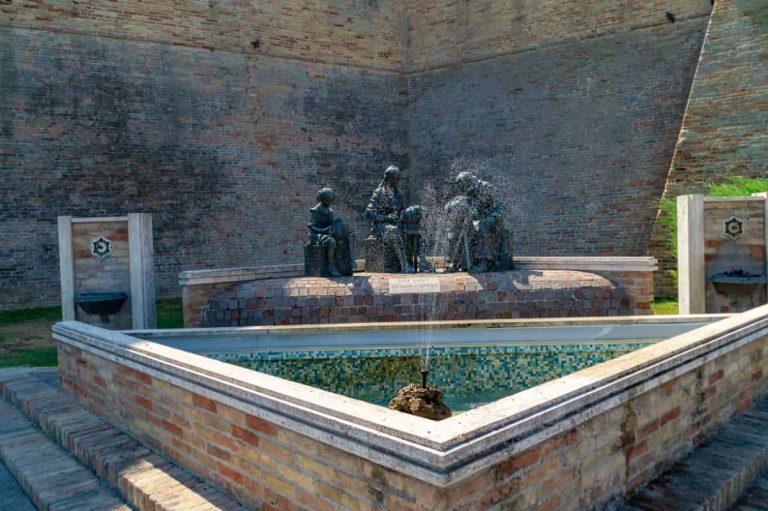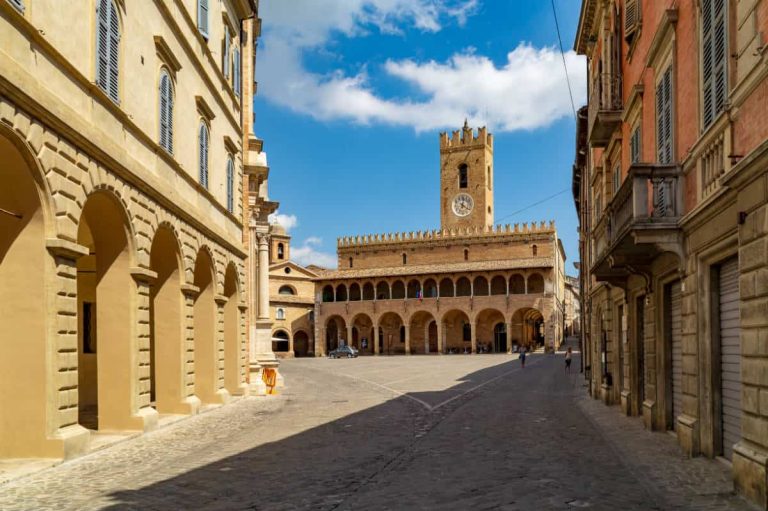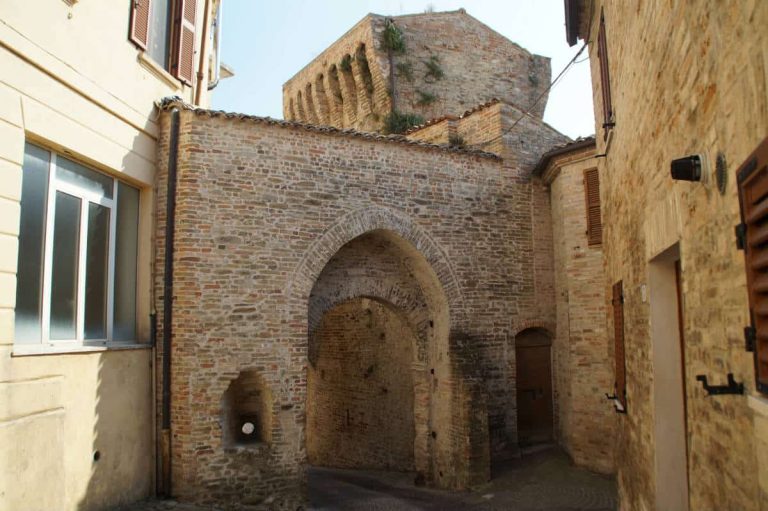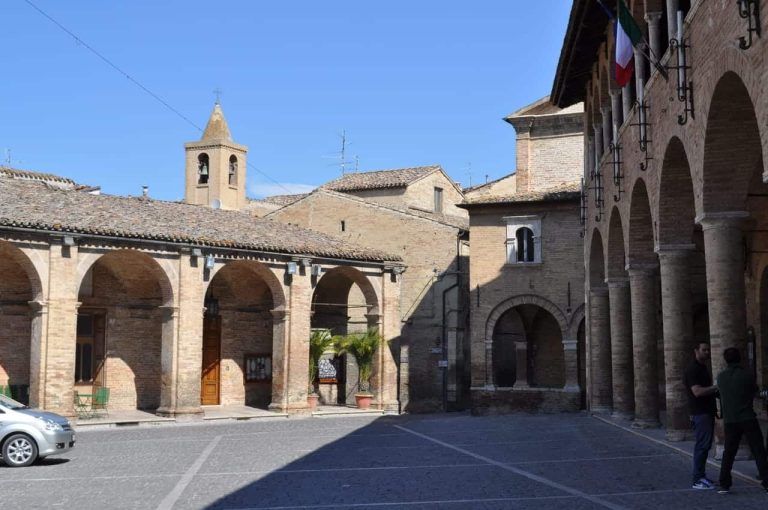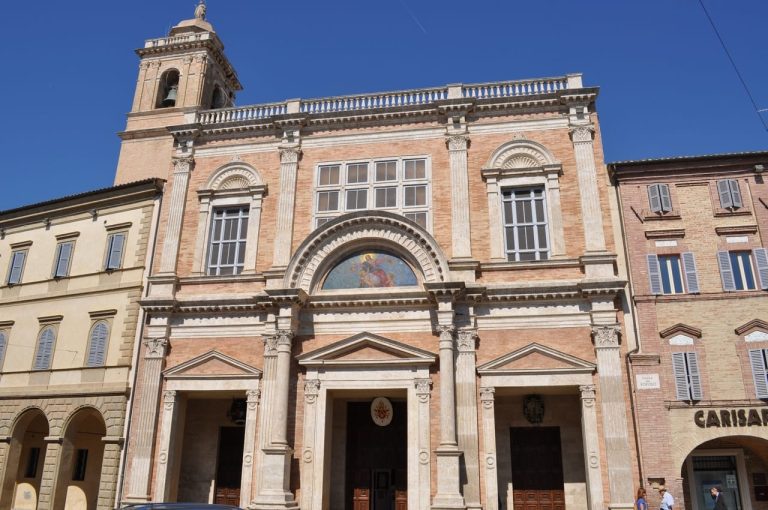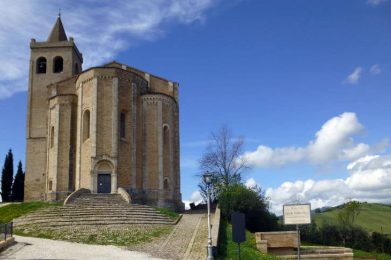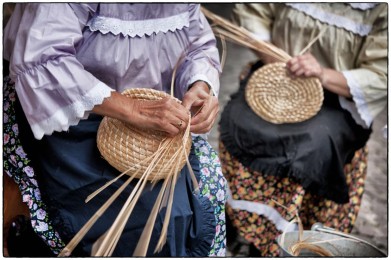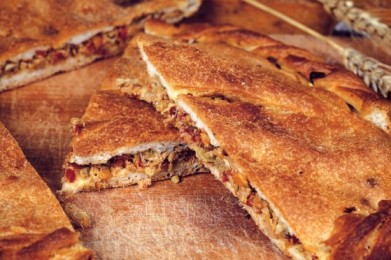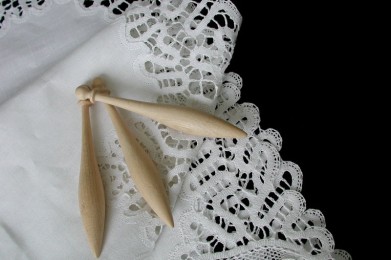Offida is an enchanting village in the Marche region, nestled on a rocky outcrop that creeps between the valleys of the Tesino and Tronto rivers, in the province of Ascoli Piceno. Its origins are lost in history and legend: although the place name remains uncertain, the presence of Picene tombs and Roman remains confirms the antiquity of the place. The first certain historical mention dates back to 1039, when the castle of Ophida was donated to the Abbey of Farfa by Longino d'Azone.
The village has proudly preserved the traces of its past, still visible in the medieval walls dotted with towers, in the 15th-century fortress of which two majestic towers and a section of wall remain, and in the religious buildings that enrich the historic center. Prominent among these is the imposing Church of Santa Maria della Rocca, the symbol of Offida. Built in Romanesque-Gothic style in 1330, it stands on a sheer cliff and houses 14th-century frescoes attributed to the Maestro di Offida, offering a mystical and solemn atmosphere.
The beating heart of the town is Piazza del Popolo, with its characteristic triangular shape. It is overlooked here by buildings of great value: the Palazzo Comunale with its travertine loggia and 16th-century portico, the Collegiate Church, the Church of Our Lady of Sorrows, which preserves the coffin of the Dead Christ, and the exquisite Serpente Aureo Theater, an 18th-century masterpiece rich in gilded stucco and Baroque decorations.
One of Offida's most fascinating peculiarities is its tradition of bobbin lace, a fine art handed down from mother to daughter for at least five centuries. The women of the village still masterfully dedicate themselves to this patient and delicate activity, using only a few tools: the bobbin lace, the prebend, wooden bobbins, thread and brass pins. The Tombolo Lace Museum, located in the Palazzo De Castellotti-Pagnanelli, celebrates this tradition and is part of a larger cultural hub that also houses the G. Allevi Archaeological Museum, the Museum of Popular Traditions and the Municipal Art Gallery.
Offida is also a land of lively events with strong appeal. The best known is undoubtedly the Historic Carnival, which has its roots in Roman saturnalia. The most anticipated moments are the "Bove finto," an enthralling symbolic run through the streets of the village, and the "Vlurd," fiery bundles carried in procession amid singing and dancing on Mardi Gras night. Other annual events include the Offida Opera Festival, Di Vino in Vino, the CiBorghi festival, dedicated to the gastronomy of Italian villages, and the Mangialonga Picena, a food and wine walk through the hills.
Local food and wine is another pride of Offida. The funghetti - anise-based sweets with a hard texture on the outside and hollow on the inside - and the famous chichì ripieno, a thin, flavorful focaccia stuffed with tuna, anchovies, capers and peppers, are expressions of a simple but genuine cuisine. All to be accompanied by a glass of Offida Pecorino DOCG or Rosso Piceno Superiore, products of the generous hills surrounding the village.
Offida, now listed among The Most Beautiful Villages in Italy, is a place where time seems suspended. Among cobbled alleys, historic homes and ancient gestures, it offers an authentic experience of culture, art, spirituality and flavors that speak of the heart of the Marche region.

